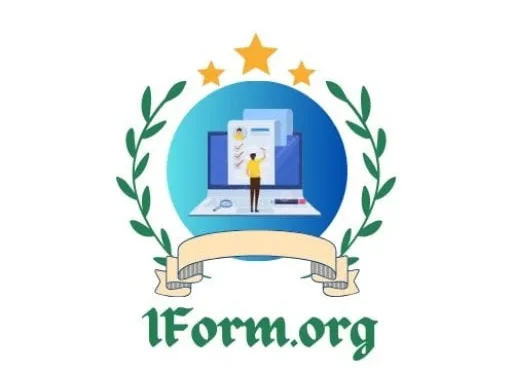
After completing 12th, students often face confusion about which career path to choose. In today’s competitive era, Financial Accounting (DFA) has emerged as one of the most popular and rewarding career options. Financial Accounting not only teaches the basics of business finance but also opens multiple career opportunities in banking, taxation, auditing, and corporate finance.
A Diploma in Financial Accounting (DFA) is a practical course that helps students gain knowledge of accounting principles, software like Tally, GST filing, taxation, and financial reporting. This blog will guide you through the career opportunities after 12th in Financial Accounting (DFA), course details, salary, job roles, and future scope.
Apply now-
What is Diploma in Financial Accounting?
Diploma in Financial Accounting (DFA) is a short-term course designed for students who want to build their career in the accounting and finance sector. The course focuses on both theoretical and practical knowledge, including accounting rules, computerized accounting, taxation, and auditing.
- Eligibility: 10+2 in any stream
- Duration: 6 months to 1 year
- Mode: Offline / Online
- Average Fees: ₹10,000 – ₹50,000
Why Choose DFA After 12th?
Choosing DFA after 12th can be a smart decision for students who want a career-oriented course without spending years in graduation.
| Benefits of DFA After 12th | Explanation |
|---|---|
| Quick Career Entry | Allows students to start working just after 12th. |
| High Demand | Every company needs accountants and finance executives. |
| Affordable Course | Fees are much lower compared to professional degrees. |
| Skill-Oriented | Focuses on practical skills like GST, Tally, taxation. |
| Future Growth | Can pursue B.Com, M.Com, CA, or MBA later. |
DFA Course Subjects After 12th
The course covers multiple modules that prepare students for real-world accounting jobs.
| Subject / Module | Key Learning Areas |
|---|---|
| Basic Accounting | Journal entries, ledgers, trial balance |
| Tally ERP / Tally Prime | Computerized accounting, GST filing |
| Taxation | Income Tax, Corporate Tax, GST, TDS |
| MS Excel & Advanced Excel | Financial analysis and reporting |
| Financial Reporting | Preparation of Profit & Loss A/c, Balance Sheet |
| Auditing & Compliance | Internal audit and statutory compliance |
| Banking & Finance | Loan management, reconciliation |
Apply now-
Skills You Gain in Diploma in Financial Accounting
- Strong knowledge of accounting principles
- Hands-on experience in Tally, QuickBooks, and SAP
- Ability to prepare balance sheets and profit reports
- GST filing and tax computation skills
- Practical experience in payroll management
- Financial decision-making and data interpretation
Career Options After 12th in Financial Accounting (DFA)
Completing DFA opens the door to multiple career opportunities in the government and private sectors.
| Career Option | Job Role | Average Salary (India) |
|---|---|---|
| Accountant | Maintain company accounts, ledgers, and statements | ₹2 – ₹4 LPA |
| Tax Consultant | Handle GST, income tax, and compliance | ₹3 – ₹6 LPA |
| Auditing Assistant | Assist auditors in reviewing accounts | ₹2.5 – ₹5 LPA |
| Finance Executive | Manage financial transactions of a company | ₹3 – ₹5 LPA |
| Payroll Manager | Handle employee salary, PF, and compliance | ₹3 – ₹6 LPA |
| Banking Jobs | Work in credit, loan, or finance departments | ₹3 – ₹7 LPA |
| Tally Operator | Use accounting software for business entries | ₹2 – ₹3.5 LPA |
Higher Education Opportunities After DFA
After completing DFA, students can continue their higher studies to increase their career prospects.
| Higher Education Option | Scope |
|---|---|
| B.Com (Bachelor of Commerce) | Builds strong academic foundation in commerce. |
| CA (Chartered Accountancy) | Professional course with global recognition. |
| MBA in Finance | Best for management roles in finance. |
| M.Com (Master of Commerce) | Academic and research opportunities. |
| CFA (Chartered Financial Analyst) | Advanced career in investment and finance. |
Future Scope of DFA After 12th
The scope of Financial Accounting is expanding due to:
- Digital Accounting & GST: High demand for professionals trained in e-filing and GST compliance.
- Corporate Growth: Every company needs accountants, auditors, and financial analysts.
- Banking & NBFC Sector: Growing opportunities in loans, credit, and investment management.
- Startups & SMEs: Startups hire DFA professionals for cost-effective accounting solutions.
- Global Opportunities: Knowledge of accounting software helps secure international jobs.
Advantages of Career in DFA
- Quick entry into job market after 12th
- Practical knowledge-based career path
- Affordable and short-duration course
- Vast job opportunities in India and abroad
- Option to pursue higher studies for better growth
Limitations of DFA Career
- Salary packages may be lower at the beginning
- Limited recognition compared to CA/CPA degrees
- Requires continuous skill updates due to changing tax laws
- More suitable for entry-level positions than senior roles
Apply now-
Comparison of DFA With Other Career Options After 12th
| Basis | DFA | B.Com | CA | Diploma in Banking |
|---|---|---|---|---|
| Duration | 6 months – 1 year | 3 years | 4–5 years | 1 year |
| Focus Area | Accounting, Taxation, Tally | Commerce Subjects | Advanced Accounting & Law | Banking & Finance |
| Cost | Low | Medium | Medium-High | Medium |
| Job Opportunities | Entry-level finance jobs | Wide career options | High-level jobs | Banking & finance sector |
| Suitability | Students who want quick career start | Academic-oriented | Ambitious, long-term planners | Finance & banking enthusiasts |
Tips for Building a Successful Career in DFA
- Gain practical experience with Tally and QuickBooks.
- Stay updated with GST and tax law changes.
- Take internships during or after the course.
- Work on improving Excel and data analysis skills.
- Plan higher studies for long-term career growth.
